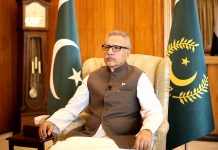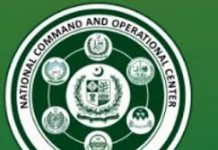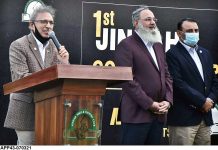مضمون کا ماخذ : اسکریچ کارڈ جیتنے کے طریقے
Both Pakistan and India use non-state actors
LAHORE: Veteran journalist and Associated Press Senior Correspondent in Pakistan and Afghanistan, Kathy Gannon, said on Wednesday both Pakistan and India used non-state actors and proxies against each other. India has misused the issues created by Pakistan in Balochistan. The Pakistan Army has lost so many soldiers in efforts to eliminate terrorism and fighting against […]
LAHORE: Veteran journalist and Associated Press Senior Correspondent in Pakistan and Afghanistan, Kathy Gannon, said on Wednesday both Pakistan and India used non-state actors and proxies against each other.
India has misused the issues created by Pakistan in Balochistan. The Pakistan Army has lost so many soldiers in efforts to eliminate terrorism and fighting against militants in country.
She was speaking at the Centre for Governance and Policy, Information Technology University. She said that she was unable to understand the Pakistan’s perspective on Indian involvement in the country, especially through Afghanistan.
Gannon, a Canadian national, was the only foreign journalist allowed by the Taliban to cover Afghanistan. All the countries, Pakistan, Afghanistan and India have their own strategic interests. This is believed that Pakistan has also staff in Afghanistan most of them are intelligence officials, she said.
Speaking specifically on Afghanistan, Gannon noted that the Afghans are angry with foreigners, especially Pakistan. They believe that Pakistan supports the Taliban, supplied them weapons, they operate in Pakistan and being provided with medical assistance, she added. She also said that the operations in Khyber Pakhtunkhwa and FATA has pushed the militants, including several Pakistanis, Uzbeks and others into the other side of Afghan border.
She also said that Pakistan has concerns that Afghanistan supports Indian intelligence, but the fact is that there are militant groups operating in Pakistan.
“These groups are here in Quetta, Peshawar, Karachi, very near to Islamabad, which has created anger in Afghans,” she observed.
She further explained that fencing the Pak-Afghan border by Pakistan would definitely solve the problems.
Talking about Islamic State in Afghanistan, she observed that different militant groups like Jamatul Ahrar and Lahskar-e-Jhangvi are in contact with each other because they have similar ideology, similar ambitions and similar targets.
Giving her personal perspective, she said that though she was attacked in Afghanistan, she remains undeterred and wants to continue working in the region.
“The actions of one mad man will not affect me,” she said. Reporting in conflict zones is difficult and independence of movement and work is complicated, Gannon noted, while explaining her embedded role with the Pakistan Army and the Afghan Army.
“There is overwhelming anger in Afghanistan against their own government. The Pashtun were glad to see the Taliban go, but were alienated by the Bonn Agreement,” noted Gannon, who has covered Afghanistan for over a decade. She also said that there were now too many groups in Afghanistan and so the insecurity and its repercussions are real.
Commenting on the Taliban, Gannon said, “Their aim is purely political; religion does not have a direct impact.”
On Pakistan, she said, “Since Afghanistan does not accept the Durand Line, Pakistan’s concerns are and will remain real.”
The Pakistan Army has been countering the terrorists, but the army is stretched, she underscored. She also said, “Pakistan is not just paranoid, it has both Indian and Afghan antagonism to deal with.” In journalism source is very important, my sources for reporting in Afghanistan were my long lasting contacts with in Taliban, she said. She went on saying that details also have significance in journalism as they help a journalist build stories.
Published in Daily Times, June 22nd, 2017.









.jpg)



